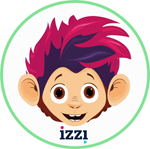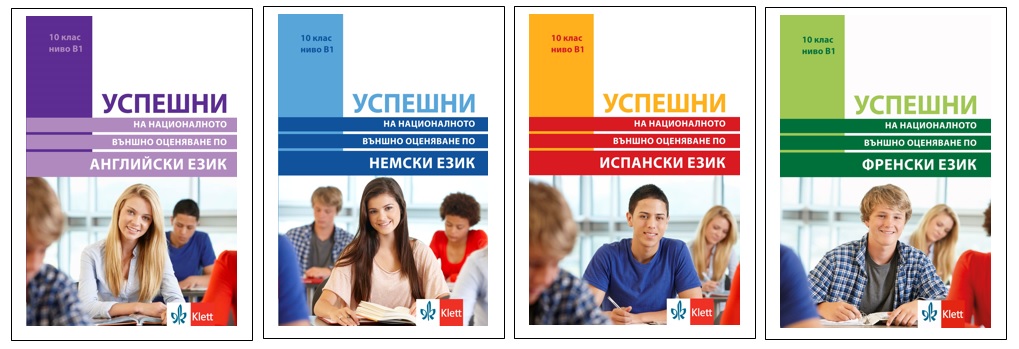SUCCESS the National Assessment in 10th grade at level B1
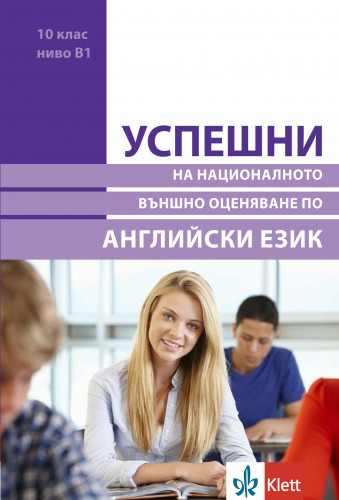
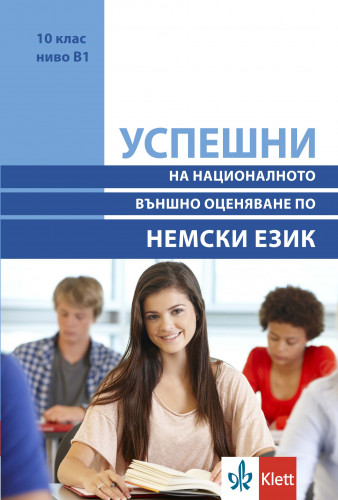
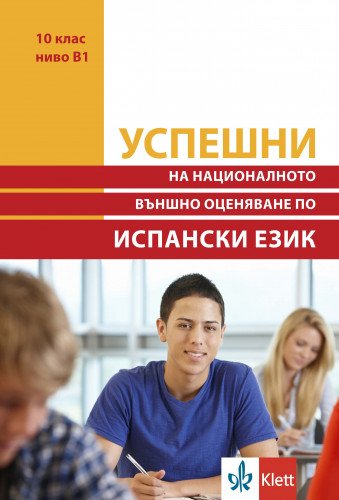
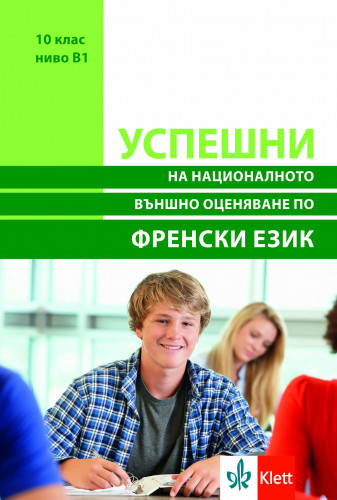
THE NEW SERIES OF KLETT WILL BE ON THE MARKET AT THE END OF MARCH 2020
ONLY NOW, EXCLUSIVELY IN SUPPORT OF THE TEACHERS, WE WILL PROVIDE EVERY DAY ONE COMPONENT OF THE FIRST TEST FROM THE STUDENT PREPARATION AID!
TUESDAY 17th March
English Language - COMPREHENSIVE READING COMPONENT PART 1 TEXT 1
German Language - COMPREHENSIVE READING COMPONENT PART 1 TEXT 1
Spanish Language - COMPREHENSIVE READING COMPONENT PART 1 TEXT 1
French Language - COMPREHENSIVE READING COMPONENT PART 1 TEXT 1
WEDNESDAY 18th March
English Language - COMPREHENSIVE READING COMPONENT PART 1 TEXT 2
German Language - COMPREHENSIVE READING COMPONENT PART 1 TEXT 2
Spanish Language - COMPREHENSIVE READING COMPONENT PART 1 TEXT 2
French Language - COMPREHENSIVE READING COMPONENT PART 1 TEXT 2
THURSDAY 19th March
English Language - COMPREHENSIVE READING COMPONENT PART 2 TEXT 1
German Language - COMPREHENSIVE READING COMPONENT PART 2 TEXT 1
Spanish Language - COMPREHENSIVE READING COMPONENT PART 2 TEXT 1
French Language - COMPREHENSIVE READING COMPONENT PART 2 TEXT 1
FRIDAY 20th March
English Language - COMPREHENSIVE READING COMPONENT PART 2 TEXT 2
German Language - COMPREHENSIVE READING COMPONENT PART 2 TEXT 2
Spanish Language - COMPREHENSIVE READING COMPONENT PART 2 TEXT 2
French Language - COMPREHENSIVE READING COMPONENT PART 2 TEXT 2
MONDAY 23th March
English Language - COMPREHENSIVE READING COMPONENT PART 3
German Language - COMPREHENSIVE READING COMPONENT PART 3
Spanish Language - COMPREHENSIVE READING COMPONENT PART 3
French Language - COMPREHENSIVE READING COMPONENT PART 3
TUESDAY 24 March
English Language - COMPONENT WRITING PART 1
German Language- COMPONENT WRITING PART 1
Spanish Language -COMPONENT WRITING PART 1
French Language - COMPONENT WRITING PART 1
WEDNESDAY 25th March
English Language - COMPONENT WRITING PART 2
German Language- COMPONENT WRITING PART 2
Spanish Language -COMPONENT WRITING PART 2
French Language - COMPONENT WRITING PART 2
THURSDAY 26th March
English Language - COMPONENT SPEAKING
German Language- COMPONENT SPEAKING
Spanish Language -COMPONENT SPEAKING
French Language - COMPONENT SPEAKING
FRIDAY 27th March
English Language - COMPONENT LISTENING PART 1
German Language - COMPONENT LISTENING PART 1
Spanish Language - COMPONENT LISTENING PART 1
French Language - COMPONENT LISTENING PART 1
MONDAY 30th March
English Language - COMPONENT LISTENING PART 2
German Language - COMPONENT LISTENING PART 2
Spanish Language - COMPONENT LISTENING PART 2
French Language - COMPONENT LISTENING PART 2
TUESDAY 31st March
English Language - COMPONENT LISTENING PART 3
German Language - COMPONENT LISTENING PART 3
Spanish Language - COMPONENT LISTENING PART 3
French Language - COMPONENT LISTENING PART 3
GET TO KNOW THE FORM OF THE NEW EXAM ANNOUNCED BY THE MINISTRY OF EDUCATION AND SCIENCE
| Components | Exercises (number) | Time | Max. points | % of the total score |
| LISTENING | 20 | 35 min. | 20 points | 25% |
| READING | 20 | 50 min. | 20 points | 25% |
| WRITING | 2 | 45 min. | 20 points | 25% |
| SPEAKING | 2 | around 12 min. for two students | 20 points | 25% |
| TOTAL | 44 exercise | writing part - 130 min.; Speaking part - 15 min for two students |
80 points | 100% |
COMPONENT LISTENING
The LISTENING component contains a total of 20 optional tasks. The maximum time for their compilation is 35 minutes and the total number of points is 20.
The component consists of three parts.
The first part contains five short texts (message, advertisement, instruction, schedule, weather forecast), which could be listened twice. Each text has two tasks, of which one task with with an optional answer has an alternative choice (true-wrong) and the other has an optional answer (1 true and 2 wrong).
The second part contains a text (informal conversation) that is listened to twice. There are five tasks with an optional answer to the conversation (with an alternative choice: true-false).
The third part contains one text: a radio broadcast (discussion), which is listened to twice. The text has five tasks with an optional answer (1 correct and 2 wrong).
This component assesses the ability to listen and understand speech, performing specific tasks related to the finding out information that is listened to about different communicative situations, participants and goals. The component tests knowledge of words, expressions and concepts on the topics in the listening texts. Students must demonstrate skills for a limited time to:
- understanding and analyzing basic information from texts - overall listening;
- understanding and analyzing important details from texts - selective listening;
- use compensatory strategies for understanding and analyzig information, guided by the content or context and by familiar word-formation patterns.
COMPONENT READING.
The READING component contains a total of 20 tasks, of which 14 tasks with optional answer and 6 tasks with short free answer. The maximum time for their implementation is 50 minutes and the total number of points is 20.
The component consists of three parts.
The first part contains two texts with six problems with an optional answer (alternative choice: true-false). The first text is an advertisement, and the second text is a program, schedule or instruction.
The second part contains two texts with to which there are eight tasks with an optional answer. The first text is a letter from an e-mail or message on social networks, and the second is a text from the media or a comment on a blog.
The third part includes a text (popular science), which refers to six short free answer tasks.
This component assesses students' ability to extract basic and specific information, important details, points of view and opinions from different types of reading texts for different communicative purposes. The component tests knowledge of words, expressions and concepts on the studied topics and skills for applying reading and comprehension strategies.In a limited time, students must demonstrate skills to:
- understanding and analyzing basic information from reading texts - extended reading;
- understanding and analyzing important details from reading texts - selective reading;
- use compensatory strategies for understanding and extracting information, guided by the content or context and by familiar word-formation patterns.
WRITING COMPONENT
The WRITING component consists of two extended free-answer tasks with a total of 20 points.
In the first task, students need to write a personal letter / email with a volume of about 80 words for a given situation and 3 reference points, following the instructions provided and the source text. The maximum time to complete this task is 20 minutes, and the maximum number of points is 20. This task assesses students' ability to describe specific events and experiences from personal life experience, to share experiences or make a suggestion.
In the second task, students need tp write a text with a volume of about 90 words, in which they express their personal opinion on a topic set in the source text. This task aims to assess students' ability to express their opinion in writing on a topic, indicating motives and arguing, making judgments and conclusions.
The two tasks in this component assess the productive communication skills in written communication and the application of the foreign language in various communicative situations of everyday life in terms of text organization, communicative adequacy, register adequacy and type of text, vocabulary, grammar and spelling.
COMPONENT SPEAKING
The SPEAKING component includes two free-answer tasks, with a maximum of 20 points for both tasks.
In the first task, students talk to a partner in the studied thematic areas, following the instructions, the given situation and the reference points. This task assesses students' skills:
- to participate in a conversation and plan a joint activity;
- to exchange information;
- to make a proposal;
- to express an opinion (agreement or disagreement);
- to speak with a pronunciation and intonation close to the norms of the language;
- use a variety of language tools, a register of communication and compensatory strategies.
In the second task, students make an independent presentation on a current topic, following the reference points and instructions. This task aims to assess students' skills:
- to present orally information on a current topic;
- to ask and answer a question or express an opinion on the presented topic;
- to speak smoothly, with a pronunciation and intonation close to the norms of the language;
- use a variety of language tools, a register of communication and compensatory strategies.
The commission examines the students in pairs. Students (in pairs) receive assignments from the examiner. Then they have 15 minutes for self-preparation with the right to take notes. Before the commission the time for completion of the first task is about 4 minutes, and for the second task about 6 minutes. After the presentation of the students, the commission has 5 minutes to fill in the evaluation form.
The topics of the texts for listening, reading, writing and speaking are:
- Personal information (presentation, age, gender, nationality).
- Home, family, friends and school - responsibilities and obligations.
- Everyday life: daily routine, shopping, shops, services.
- Appearance and character.
- Interpersonal relationships: feelings, emotions.
- Education, professions and social contacts.
- Социална среда и ценностна система. Начини на общуване: реално и виртуално, речеви етикет.
- Birthplace - past, present, future, remarkable personalities.
- Dreams and ideas about the future: education, profession, home, family.
- Clothing and fashion. Fashion preferences and trends.
- Catering and restaurants. Culinary diversity.
- Free time and interests: music, books, cinema, sports.
- Health and healthy lifestyle: healthy eating, physical activity, healthy habits and behavior.
- Nature: plants and animals, fruits and vegetables, weather, climate, natural phenomena, geographical objects, natural wonders.
- Ecology: environmental organizations and initiatives.
- Ecology and tourism: protected natural sites.
- Travel, vacation, tourism: planning, transport and orientation in the city, impressions and experiences.
- Arts: emblematic representatives of different types of arts and culture and their works.
- Science and scientific achievements: famous scientists and their contribution, innovative technologies.
- Homeland and the world - languages, countries, peoples, citizens of Europe and the world.
- Holidays and traditions in the homeland and the countries of the studied language.
- Cultural and historical landmarks in the homeland and the countries of the studied language.
- The contribution of the homeland to the world cultural and historical heritage.

